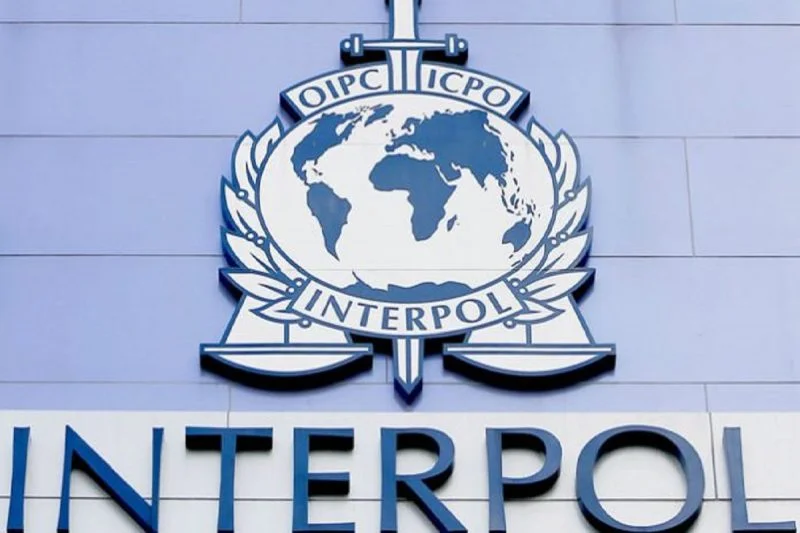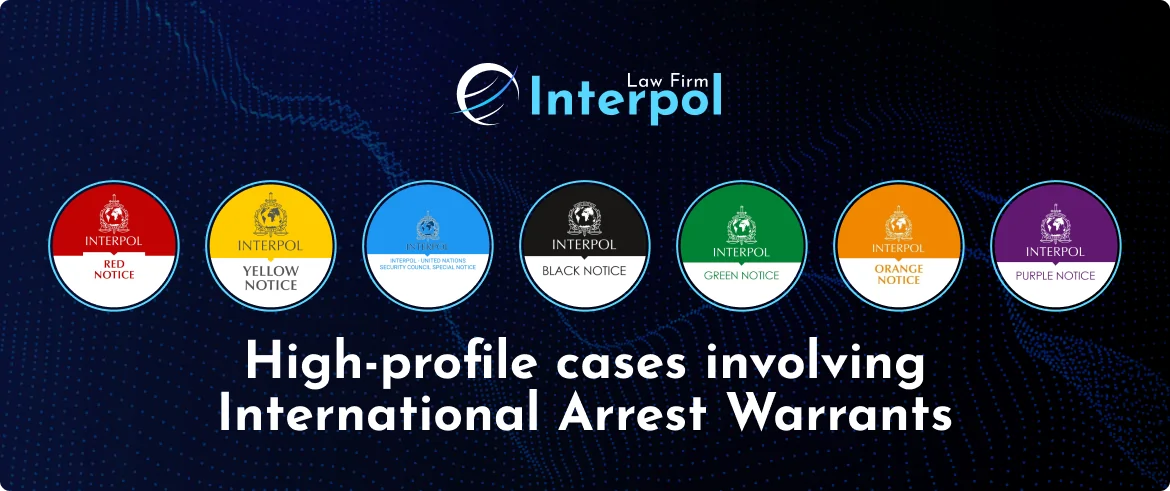An international arrest warrant is a key tool used by law enforcement agencies to maintain order on a global scale. This document is typically issued for individuals suspected or accused of committing crimes that have an international dimension or require extradition. Arrest warrants are utilised by various international organisations and states to pursue and detain criminals hiding in other countries. It's crucial to understand that such warrants are governed by strict international norms and procedures, making them an important element of international justice.
An international warrant is a legal document issued by a national or international body that demands the detention of an individual in connection with alleged crimes committed on the territory of another state. One of the most well-known organisations dealing with such warrants is the International Criminal Police Organization (Interpol). A crucial part of the warrant is the requirement for the extradition of the individual to the country where they are accused of committing a crime or are due to serve a sentence. The basis for such warrants lies in international agreements and bilateral treaties, which obligate states to cooperate in matters of law enforcement.
An international warrant is a legal document issued by a national or international body that demands the detention of an individual in connection with alleged crimes committed on the territory of another state. One of the most well-known organisations dealing with such warrants is the International Criminal Police Organization (Interpol). A crucial part of the warrant is the requirement for the extradition of the individual to the country where they are accused of committing a crime or are due to serve a sentence. The basis for such warrants lies in international agreements and bilateral treaties, which obligate states to cooperate in matters of law enforcement.
Goals of the international arrest warrant:
An international arrest warrant can be issued in instances where the suspect or accused individual is charged with committing a crime that falls under the jurisdiction of international law, or when the crime has a transnational nature. These can include crimes related to terrorism, human trafficking, drug trafficking, cybercrimes, as well as crimes against humanity, war crimes, and genocide. It's important to note that a warrant can only be issued in cases where there are reasonable grounds to believe that the individual is evading justice in another country, and there is a real possibility of their detention and subsequent extradition .
Should you encounter any issues related to Interpol notices and warrants, we recommend consulting international warrant lawyers. A team of Interpol warrant attorneys, with many years of experience in international matters, will provide you with reliable and qualified legal defence at any stage.

Interpol plays a pivotal role in the process of issuing international arrest warrants. The process begins with a request submitted by a national law enforcement agency, which is then forwarded to Interpol's General Secretariat. The request must include comprehensive details about the individual sought, the nature of the charges, evidence supporting their involvement in the crime, as well as information on the relevant legal procedures. Following the review and approval of the request by the General Secretariat, the information is disseminated as a Red Notice to all Interpol member states. Such a notice does not constitute an arrest warrant in the strict legal sense; however, it establishes a legal basis for detaining the individual in one of the countries that have signed the relevant international agreements.
The primary aim of international arrest warrants is to ensure justice on a global scale by pursuing and detaining individuals accused of committing serious crimes. These warrants enable countries and international organisations to coordinate their efforts in combating crime that knows no borders. Specifically, such warrants are aimed at preventing criminals from evading justice by hiding in another country, as well as ensuring a fair trial in the country where the crime was committed. Moreover, international arrest warrants contribute to strengthening cooperation between states in the field of law enforcement and the fight against transnational crime.
There are several mechanisms through which international warrants can be issued: International arrest warrants are aimed at facilitating international cooperation in law enforcement. There are several mechanisms for issuing such warrants.
An Interpol Red Notice is a formal alert issued by one member country to all other member states, requesting support in the identification, arrest, and extradition of an individual wanted for serious criminal offenses. While a Red Notice does not equate to an international arrest warrant, it provides a legal basis for law enforcement agencies worldwide to act in accordance with their domestic legislation.
In adherence to Interpol's regulations, Red Notices must include comprehensive details about the person in question and the offenses they are charged with or convicted of. This includes:
These details ensure that member countries have sufficient information to decide on appropriate action while upholding their national laws and international agreements.
The European Arrest Warrant (EAW) is a form of international arrest warrant that operates within the European Union. The EAW was introduced by the Council Framework Decision of the EU on 13 June 2002 and is designed to simplify and speed up the extradition process between EU member states. The key difference between the EAW and other international arrest warrants is that it operates on the principle of mutual recognition of judicial decisions, which significantly reduces bureaucratic procedures and time expenditure. A warrant can be issued for individuals accused of committing crimes that carry a penalty of imprisonment for a term of not less than one year, or for individuals who have already been sentenced and are required to serve a sentence.
The International Criminal Court (ICC) was established under the Rome Statute, which was adopted in 1998 and came into force in 2002. The court operates from its headquarters in The Hague, Netherlands, and stands as the first permanent international judicial body with the authority to prosecute individuals for the most severe crimes of global concern.
An ICC arrest warrant is a formal directive requiring state authorities to detain and surrender an individual accused of crimes that fall within the jurisdiction of the ICC.
Under Article 58 of the Rome Statute, an arrest warrant may be issued when there are reasonable grounds to believe that a person has committed a crime within the court’s jurisdiction, and when their arrest is deemed necessary for the following purposes:
The ICC’s authority to arrest extends to crimes committed within the territories of countries that have ratified the Rome Statute, as well as against citizens of those states.
The Prosecutor of the ICC may launch an investigation independently, at the request of a member state, or upon referral by the United Nations Security Council. Evidence is gathered to substantiate an individual's involvement in crimes, and the Prosecutor subsequently requests the Pre-Trial Chamber to issue an arrest warrant. If the Chamber determines that reasonable grounds exist, it issues the warrant, which is then distributed to member states for enforcement.
Member states are obligated to cooperate with the ICC in executing warrants. This cooperation involves national law enforcement agencies detaining the suspect and arranging their transfer to The Hague. However, if the suspect is found in a non-member state, enforcing the warrant presents significant challenges due to the lack of binding obligations on those countries to comply.
International arrest warrants serve as critical tools in combating transnational crime. However, there are instances where such warrants may be improperly issued or used for purposes of political repression. In these situations, understanding the legal avenues for contesting an international arrest warrant as well as red notice removal is crucial to safeguarding your rights and freedoms.
If detained under an international arrest warrant, individuals retain the right to challenge their arrest within the national judicial system. During these legal proceedings, presenting robust arguments and supporting evidence to question the legitimacy of the detention and potential extradition is essential. The court may refuse extradition if valid grounds are proven.
Individuals may also seek political asylum if there is a substantial risk of persecution. Immigration authorities review such requests and may overturn extradition orders based on their findings.
Another path to contest an international arrest warrant involves appealing to international judicial organizations such as the European Court of Human Rights, the UN Human Rights Committee, among others.
Having an experienced attorney is critical for effective representation and protection of your rights. If language barriers arise, individuals have the right to an interpreter to ensure fair proceedings. It is essential to act swiftly, as appeal deadlines are often time-sensitive.

Interpol employs a variety of notices, each with its own purpose and legal significance:
Each of these notifications plays a vital role in international cooperation and the exchange of information between law enforcement agencies.
Professionals with experience in Interpol-related cases can offer crucial support to individuals dealing with international arrest warrants or Interpol notices. These experts conduct thorough assessments of the basis for a Red Notice, pinpointing any potential breaches of the individual's rights. With a solid, evidence-based approach, they can submit appeals to the Commission for the Control of Interpol’s Files (CCF) to request the removal of the notice.
When extradition requests arise, skilled legal practitioners evaluate the legitimacy and necessity of the request, identify potential rights violations, and file appeals or petitions to deny extradition in line with international legal standards and human rights principles.